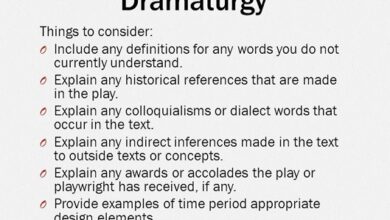What is Encyclopedism and Encyclopedism and Education
Encyclopedism
Encyclopedism is called the series of doctrines that were proposed in L’Encyclopédie ou Dictionnaire raisonné des sciences, des arts et des métiers, published between 151 and 1772, in France. In this, a call was made to the population, to put reason above tradition, religion and authority, especially those that are based on scientific evidence. In the same way, the first thoughts concerning equality, liberty and fraternity were established , which spread around France and England itself; This would end up generating a series of revolutions, one of the most outstanding being the French one.
Encyclopedism, as a philosophical and pedagogical movement, was widely influenced by the Enlightenment , a social and cultural movement also developed in France, during the time around the French Revolution. The main thinkers of encyclopedism, Denis Diderot and Jean d’Alembert, who considered the illustration as the perfect tool for the destruction of all superstitions that existed until now; This is how they include religious intolerance in their own movement, where they praise the actions of Protestants. For this reason, the encyclopedia has been considered one of the most important manifestations of the Enlightenment.
As such, a series of purposes are presented in it, such as: the dissemination of republican and democratic ideals , in addition to the knowledge accumulated for the time; raise the issue concerning the feudal system and absolutism; give man back his natural freedom, through the teaching of reasoning. This, from his perspective, would be the empowerment of humans and remove all traces of existing tyranny.
Encyclopedism and Education
Encyclopedia is one of the most frequent ways of approaching the teaching-learning process in the educational system. Sábato has alluded to this way of understanding education as one of the “evils” or main obstacles to the formation of integral subjects.
Encyclopedia is based on mechanical, repetitive work proposals, where rote, uncritical and thoughtless learning prevails, where the merit of the student lies in his success to faithfully reproduce a science made, the words of others or lists of names, dates or symbols , which generally lack meaning for him, that is, they are empty of content that can be assimilated in a previous conceptual network. Encyclopedism is not training but information. The student memorizes data that he then quickly forgets because he cannot make sense of it. Therefore, he does not understand and does not learn. This vision of teaching seems to be based on the idea that the student arrives in the classroom as a blank slate, empty of all knowledge and therefore must be “injected” with the basic information that he must handle.
From personal experience, I can safely say that I have spent my entire primary school and early high school years studying by heart, word for word, with semicolons. And it has been like this not by their own initiative, but by the constant presence of professors who stimulated this type of rote methodologies that, although they only resulted in ephemeral knowledge without knowing, led without fail to the award of the best grades, which were always obtained. by the most seasoned in the task of repeating in the best parrot style.
Continuing with encyclopedism and its consequences, I also invite you to reflect on the danger of facing a teaching based on abstract definitions, strictly defended in pursuit of maintaining scientific rigor, thus invalidating any type of intuitive, practical or everyday knowledge. Although education should encourage a good use of basic concepts, the exaggeration in this premise leads to the student ending up discarding his own conceptualizations, not understanding those rigorously elaborated by the disciplines, ending up ignoring even the most basic, and even dominating less than what a layman who lacks formal instruction in the matter in question but who has mastered the concrete practice can know.
In any case, the problem is not in encyclopedism itself but in its exacerbation. I believe that it is necessary to memorize some things that serve as a support, framework of a structure that later has to be filled with meanings that are integrated into that great conceptual map that should be built throughout basic schooling. In addition, many memory contents acquire meaning over time and the training process, with personal maturation and the understanding of other partial realities that are later integrated. For this reason, I believe that rigorous encyclopedism does not build thinking subjects by themselves, but neither is it a question of completely eradicating it. As in everything, moderation and/or the right measure are an important part to take into account in any recipe…
Education is the process by which subjects acquire conceptual, attitudinal and procedural tools valued by their social context and that contribute to their insertion in culture and their formation as thinking, critical, autonomous beings, capable of understanding their surrounding reality, interacting in their environment and develop to know and expand the cultural legacy they receive.
In the educational process, in addition to apprentices or students, teachers are also involved whose task is to provide these tools, favoring their learning and stimulating it with key facts, triggers, based on questions and not already prepared answers, arousing astonishment, so that they allow students to participate in the discovery, exploration and invention of knowledge.
Consciential attributes of the Encyclopedism
Attributes. There are required attributes for encyclopedic search:
- Attention. (Attention) Focus of consciousness on the priority.
- cosmovisibility. Comprehensive view, cosmovision of encyclopedic work.
- Creativity. Freedom to go beyond the limits of what has already been established.
- Detail. Valuing the subtleties essential to great discernment.
- Completeness. Paradoxical quality of motivating exhaustive productivity.
- Readability. Predisposition for omnivorous reading.
- Logic. Ability to organize the sequence of contents.
- Organization. Tireless commitment to day-to-day organization.
- Straightness. Prioritization of orthothosenes in the thematic approach.
- Tenacity. Persistence in research.

